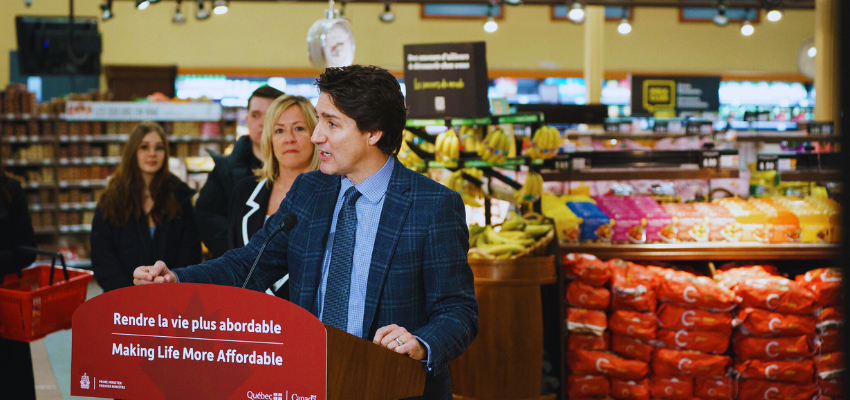This article originally appeared in the Financial Post. Below is an excerpt from the article.
By Jack Mintz, December 6, 2024
The Trudeau government has put itself in a bind with its $6.3-billion taxpayer-funded vote-buying promises. With NDP support, it passed a $1.6-billion GST tax holiday that exempts spending on restaurants, games, snacks, books, children’s clothing and other items from Dec. 14 to Feb. 15.But the bill did not include the $250 cheques the Liberals want to send working families earning less than $150,000. That $4.7-billion promise isn’t enough for the Bloc and NDP, who also want cheques for non-working retirees, the disabled, students and stay-at-home parents. Expanding the rebate this way will hike the 2024-25 federal deficit again, though it’s already $7 billion higher than last year’s April to September deficit.
There are better ways to increase rebates and provide tax holidays. My colleague Philip Bazel at the University of Calgary School of Public Policy has modelled how Ottawa could have avoided complexity, targeted relief and reduced overall costs by providing a one-time, $250 increase in the GST tax credit, which goes to low- and modest-income families, whether working or not. The current GST credit is $340 quarterly before the clawbacks that occur as recipients’ incomes rise. A single parent with four children receives at least some credit up to $70,000 in family income.
***TO READ THE FULL ARTICLE, VISIT THE FINANCIAL POST HERE***
Jack Mintz is the President’s Fellow at the University of Calgary’s school of public policy and a distinguished fellow at the Macdonald-Laurier Institute.






